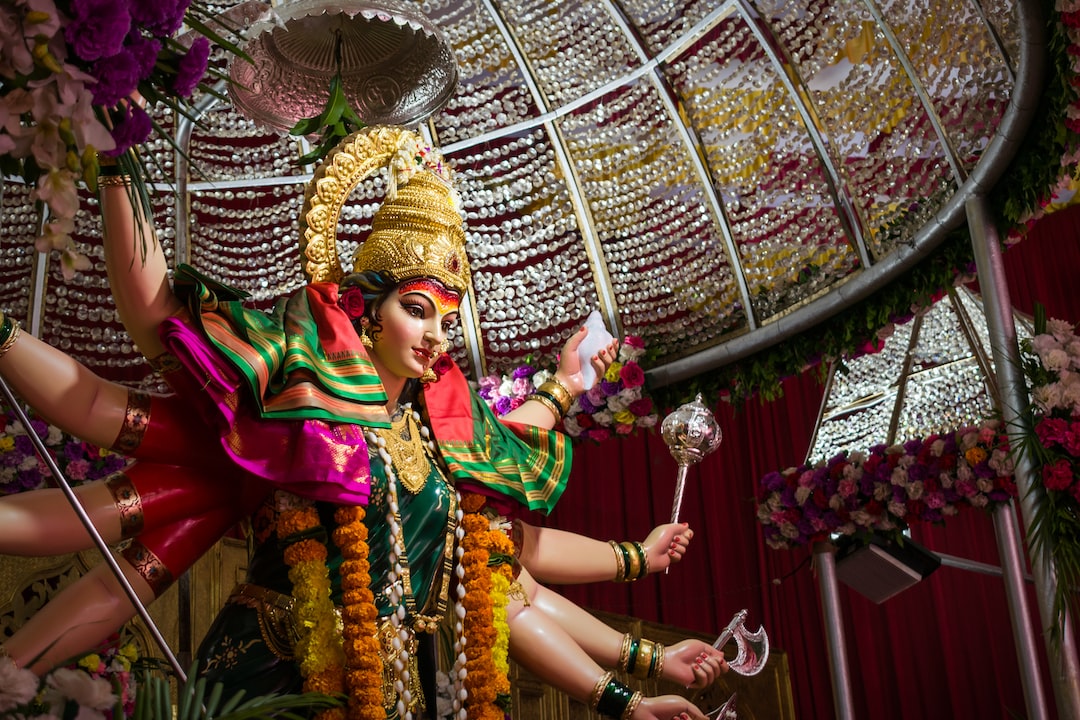The Role of Rituals in Religious Practices: Why Do We Perform Certain Actions?
Religion is an integral part of human society, and one of the most visible aspects of religious practice is the performance of rituals. But have you ever stopped to think about why we perform certain actions when it comes to religious rituals? What purpose do these actions serve, and why are they so important? In this blog post, we will explore the role of rituals in religious practices, aiming to shed light on these questions.
Rituals are repetitive actions or gestures that hold significant meaning within a religious context. They are structured and purposeful in nature, often following established guidelines or traditions. These rituals can vary greatly from one religious tradition to another, but they share common elements that provide insight into their role and significance.
One of the primary functions of rituals is to establish a connection between the individual and the divine. By engaging in specific actions, believers express their devotion or dedication to their faith or deity. For example, in Christianity, the act of lighting a candle and saying a prayer in a church signifies reverence and a desire for spiritual communion. These rituals serve as a conduit for individuals to enter a state of heightened awareness and connect with the divine.
Furthermore, rituals often fulfill a psychological function by creating a sense of structure and familiarity. In a chaotic world, rituals provide an anchor and a sense of control. They offer predictability and stability, especially in times of uncertainty or stress. Engaging in familiar religious rituals can provide individuals with a sense of comfort, reassurance, and the feeling of being part of a larger community with shared beliefs and practices.
Another reason behind the performance of rituals lies in their ability to convey religious teachings and values. Through ritualistic actions, religious concepts and narratives are taught and reinforced. For example, the Islamic ritual of fasting during the holy month of Ramadan reinforces the values of self-discipline, empathy, and gratitude. By experiencing hunger and abstaining from certain activities, believers develop a heightened sense of empathy and a deeper appreciation for the blessings in their lives.
Rituals also serve as a means of celebration and commemoration. They mark significant events or milestones in the religious calendar, reminding believers of their historical or cultural roots. These rituals can take various forms, from elaborate ceremonies to simple prayers or offerings. For instance, the Hindu festival of Diwali signifies the triumph of light over darkness and good over evil. It is celebrated with fireworks, feasts, and the lighting of oil lamps, symbolizing the victory of righteousness and the dispelling of ignorance.
Moreover, rituals often create a sense of identity and belonging. They distinguish one religious community from another, providing a unique cultural and spiritual character. Rituals act as a bond, unifying individuals who share the same faith and values. They serve as a reminder of one’s religious heritage and traditions passed down through generations. By partaking in rituals, believers strengthen their connection to their religious community and reaffirm their commitment to their shared beliefs.
Beyond their individual and communal functions, rituals can also be a powerful source of inspiration and motivation. They have the potential to evoke heightened emotions, foster a sense of the sacred, and inspire a deeper sense of purpose. Rituals can be transformative experiences that leave a lasting impact on individuals, encouraging them to live in alignment with their religious principles and values.
In conclusion, rituals play a multifaceted role in religious practices. They act as gateways to spiritual connection, providing structure and stability, conveying religious teachings, and fostering a sense of identity and belonging. Whether it be through prayers, offerings, fasting, or celebrations, rituals serve as a means of expressing devotion, marking significant events, and inspiring individuals on their spiritual journey. These actions hold deep meaning and purpose, enriching the religious experiences of believers and contributing to the vitality of religious traditions.

